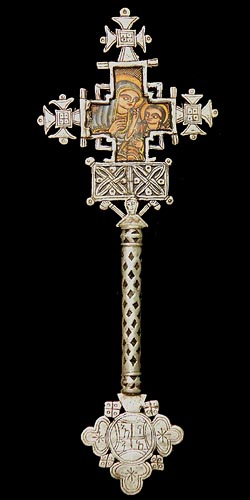The issues we face today are Goliath in nature—tensions on the Korean peninsula, conflict in the Middle East, the effects of climate change, and our complicity in practices that cause ecological destruction and aggravate the lives of people across the planet, especially the poor. Then there’s the scourge of racism, global terror, nationalism, authoritarianism, and now, the unconscionable travesty on our borders, where children of immigrants have been torn from their parents and placed in holding cells and detention camps.
Many recognize that US immigration policies have needed reform for years. But this administration’s insistence on criminalizing immigrants, and using family separation as a deterrent to immigration—even those seeking asylum in the US—is immoral and contrary to our values. In the past, those detained were typically people identified as a threat—gang members, drug smugglers, and human traffickers. Ordinary people, fleeing violence or poverty were welcomed and given the opportunity to present their case for asylum.
While the President has appeared to soften this approach, there is no plan for the reunification of families, children are still farmed out across the country in foster settings, and parents are still detained or even deported. While it appears that children crossing the border with their parents may no longer be separated from their parents, these families will all be held in detention facilities.
The world knows what detention facilities mean, they are concentration camps—they’re never good for adults, let alone children. Detention camps are shameful symbols of the kind of dehumanizing practices most people have later come to abhor.
This weekend, Pastor Mary (Davis Community Church) is helping lead a group of several dozen advocates from our area to the border. Our faith-based network through Sacramento ACT ?and the newly formed local coalition we’re calling ACT in Yolo) will join thousands from California and other parts of the country to express our values and advocate for humane treatment of those coming across the border, especially those seeking asylum who have been criminalized by our government.
And here’s what they are advocating for:
• The immediate end of the inhumane and immoral practice of separating children from their parents
• The immediate reunification of over 2,000 children who have been torn apart from their mothers and fathers
• To end the inhumane practice of incarcerating children in our country
• To replace the current system of childhood incarceration rooted in punishment and profit with a new system rooted in restorative justice and healing
This is God’s work. It is the way of Jesus.
The best of our religious values, across the faith communities, urge people of faith to provide sanctuary for those in danger, hospitality to those seeking comfort, and dignity to all God’s children regardless of race, religion, gender, age, ethnicity, or national identity.
How is it that we have departed from these values?
And where, in particular, is the church’s voice protesting such abhorrent practices, and especially the twisted and blasphemous use of biblical texts (Romans 13.1) by this administration’s spokespersons as they attempt justify adherence to abhorrent policies, while ignoring the higher biblical mandate that “love is the fulfilling of the law” (Romans 13.10).
Gratefully, more and more people are rising up against this tyranny.
And there are things you and I can do. But there’s no one best thing. Do what you can do; what’s within your particular reach. Pastor Mary and others will be on the border, performing non-violent, direct moral action to bring light into this darkness. But other ways are just as important and effective, no matter how small they may seem.
Here are a few:
1. Write letters and emails to editors, legislators, and politicians (DCC will have action tables at church this Sunday helping you do just this)
2. Attend vigils, actions, and rallies. There is one tonight (Thursday) here in Davis at St. Martin’s Episcopal Church, 640 Hawthorn Ln, Davis, CA 95616, from 7:30-9:00pm. It’s the longest day of the year, the summer solstice, and accordingly, we want to bring as much light on this issue as we can. This will be a long struggle for change, reform, and transformation of our nation. There will be many other opportunities.
3. Engage with local immigrant rights and advocacy groups. Our affiliation with SacACT and ACT in Yolo is an important way to work for justice locally. We have a detention center right her in Woodland. Let me or Pastor Mary know if you with to be involved in this work.
4. Contribute funds for family reunification. Here’s one: https://togetherrising.org/heres-how-you-are-serving-the-s…/. More will come our way, some through the Presbyterian Church USA.
5. Register voters, campaign for and elect candidates you know will lead and serve with moral courage especially in these midterm elections.
6. Keep connected with the local church. A strong, healthy, and financially sustainable congregation is a moral and spiritual necessity in these years. There is a long and winding journey ahead of us as a nation. The local church and its partnership is a socially responsible way to engage in reforms that are progressive, inclusive, and oriented to biblical justice.
7. Stay centered and nourished spiritually. Keep to your practices of prayer, study, meditation, and community, as well as to our congregation’s Three Practices of Sabbath, Self-Care, and Service. And participate in courses through Integrated Spirituality that can keep you grounded for the long haul.
8. Be kind. Remember that every person deserves dignity. No one is a monster, even if you consider them an enemy or if they vote differently than you do. Anger, belittling, name-calling or finger-pointing helps no one and only adds to the divisions, hurt, suspicion, and violence.
9. Breathe and pray. Pray and breathe. And most of all . . . love one another.



